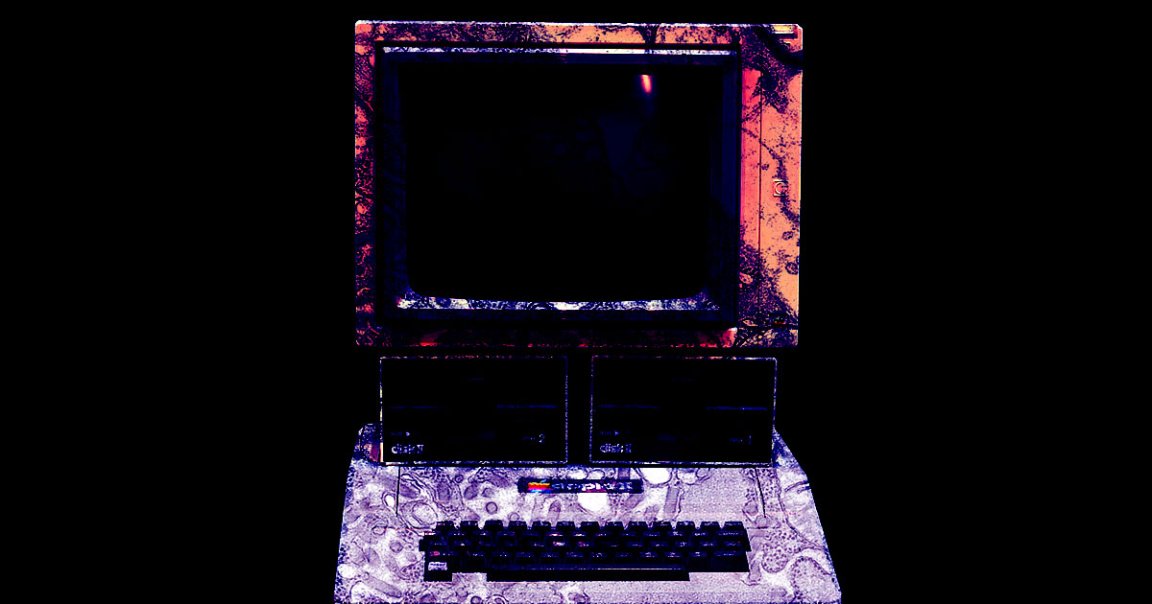
Computer-Making Virus
When your computer stores data, it has to pause while the information moves from one piece of hardware to another. But that may soon stop being the case, as scientists from MIT and the Singapore University of Technology and Design uncovered a new manufacturing trick that should let them build computers that don’t have those annoying delays.
The key is to sit back and let a virus — the biological kind — handle the assembly work. Using a virus called a M13 bacteriophage to manufacture a specific component may unlock phase-change memory systems, a type of digital storage that would speed up any computer using it, according to research published last month in the journal ACS Applied Nano Materials.
Long Term Memory
The problem these viruses solve comes from the way memory is transferred within a computer. Moving data from high-speed but transient RAM to permanent storage on a hard drive can sometimes take a computer several milliseconds.
Replacing that two-part memory system with a single, catch-all type of storage called phase-change memory would reduce that delay to about ten nanoseconds.
Bug in the System
But the existing manufacturing process for phase-change memory reaches temperatures high enough to destroy gallium antimonide, one of the base materials necessary for phase-change memory systems. Using a virus to pullthe pieces of gallium antimonide together into usable wires, however, kept the temperature much lower, according to the research.
So fret not. At some point in the future, should this research find its way into computer hardware systems, your lost milliseconds will be returned to you and you’ll be far more productive — if you can stay off Twitter.
READ MORE: Researchers use a virus to speed up modern computers [Singapore University of Technology and Design via Phys.org]
More on computer memory: A New Kind of Memory Could Make RAM and ROM Obsolete